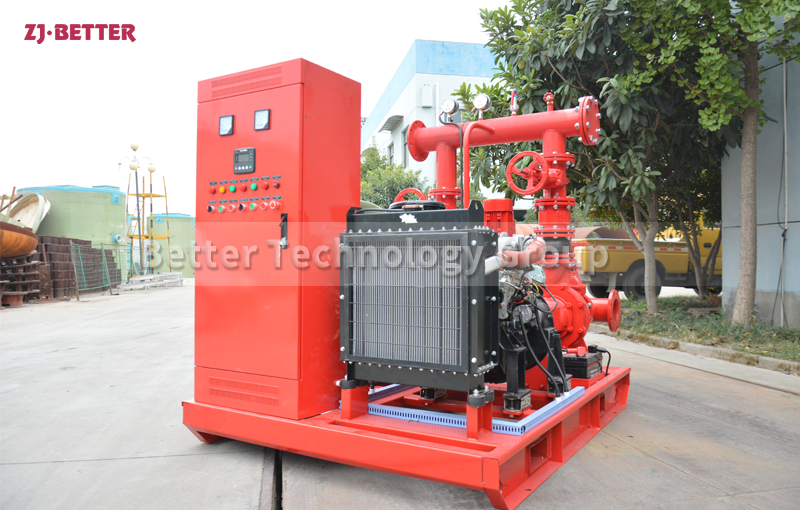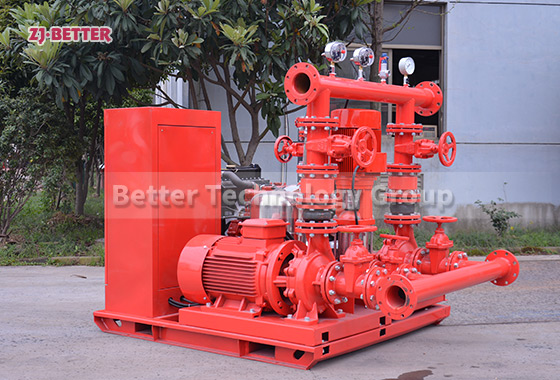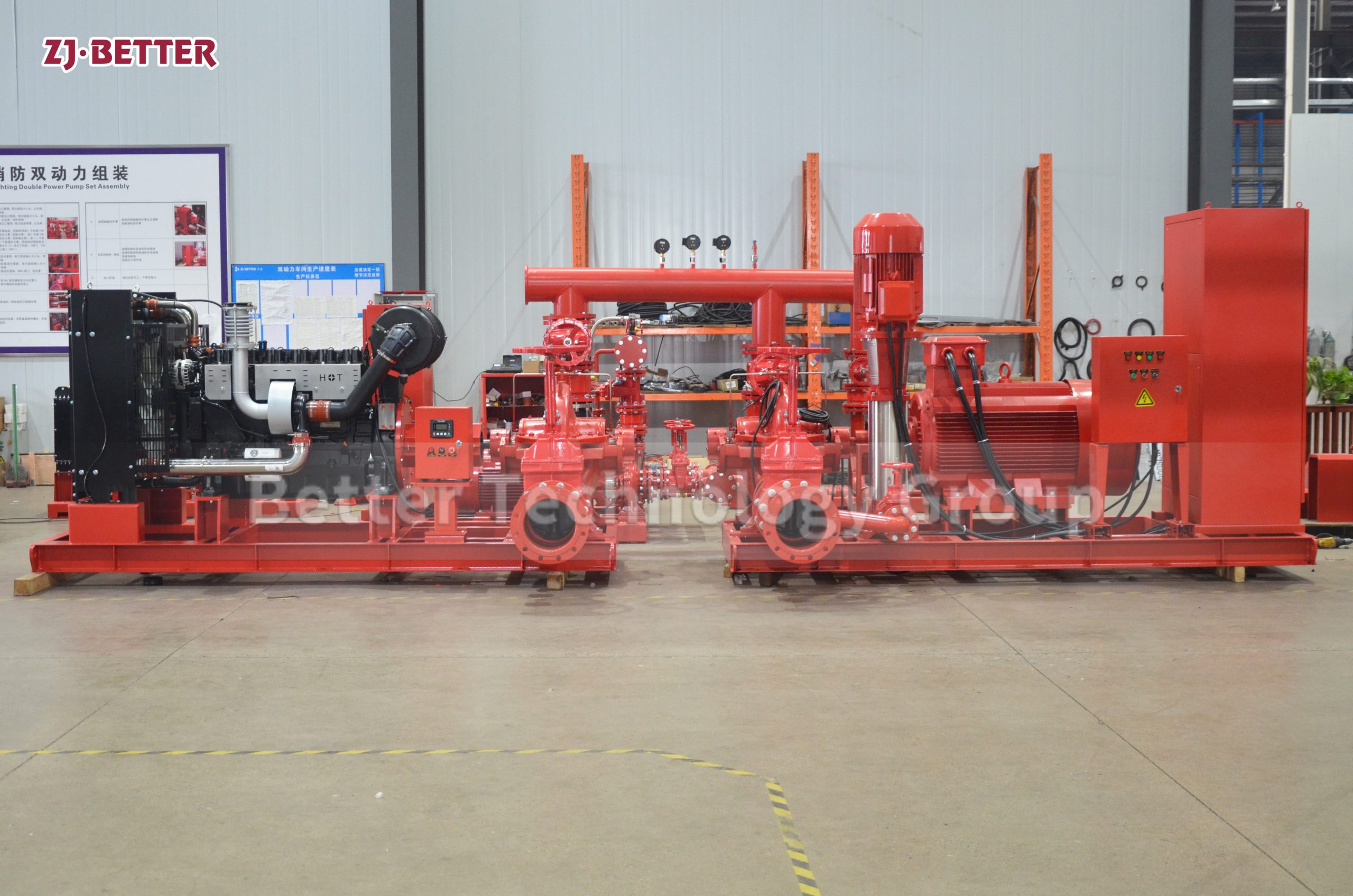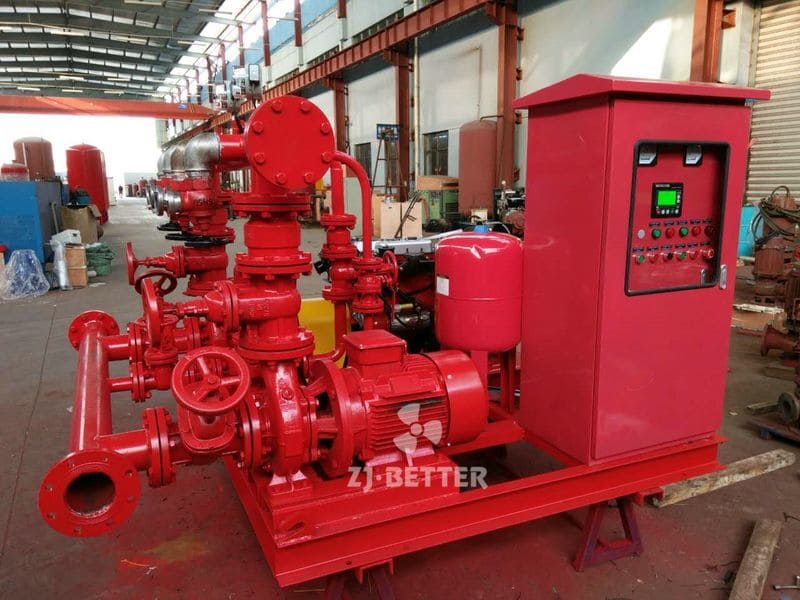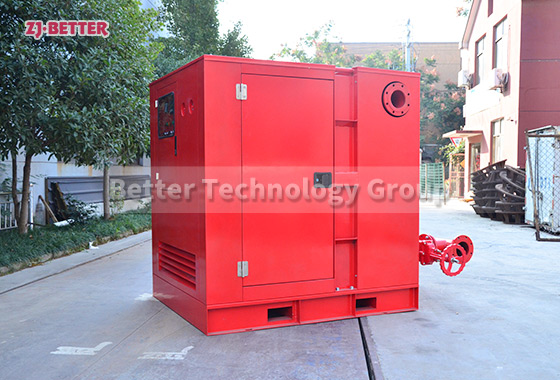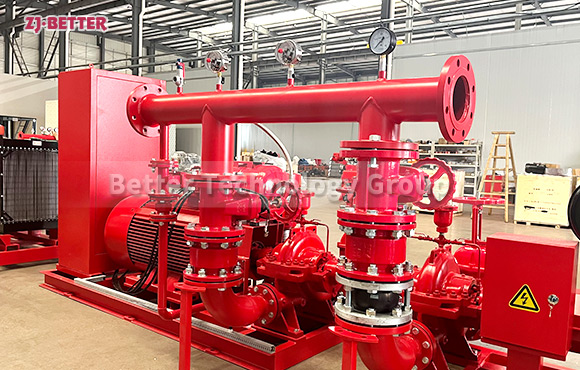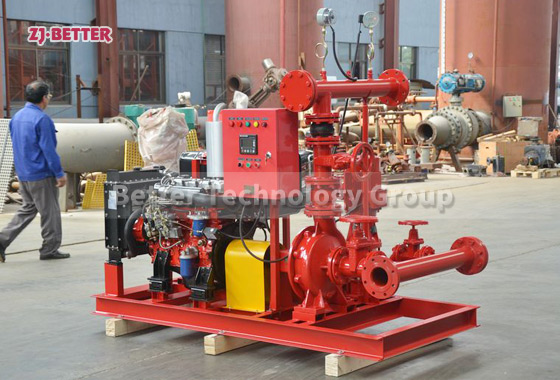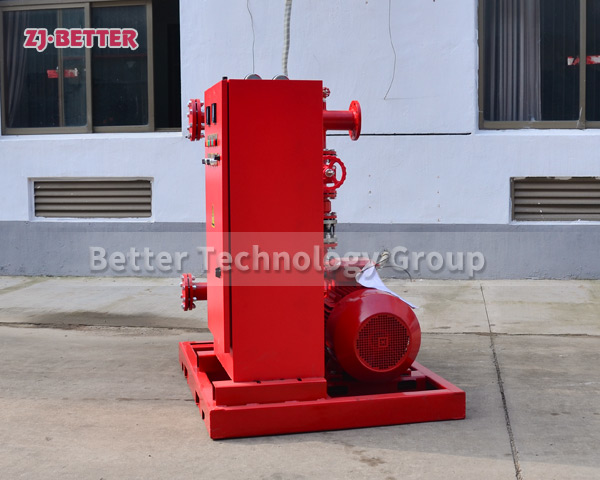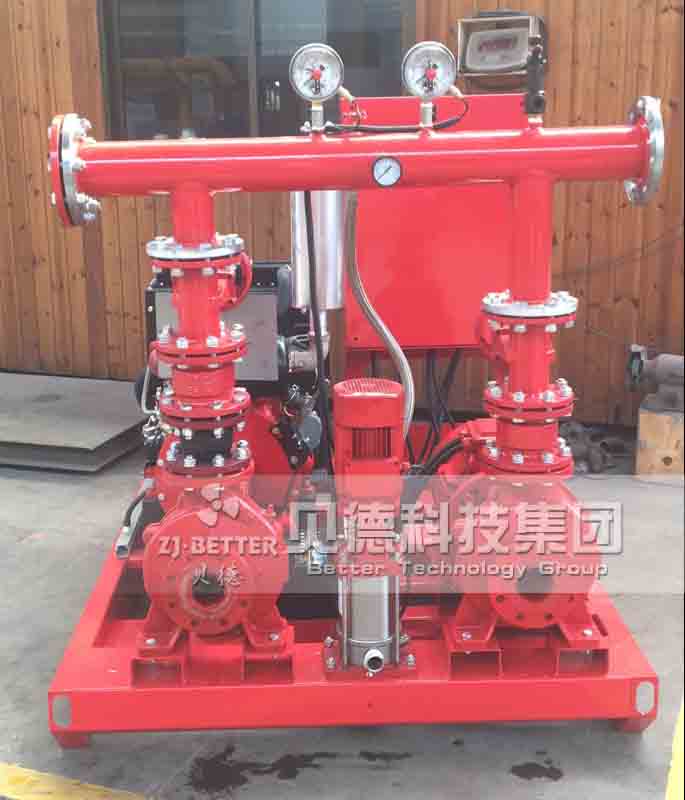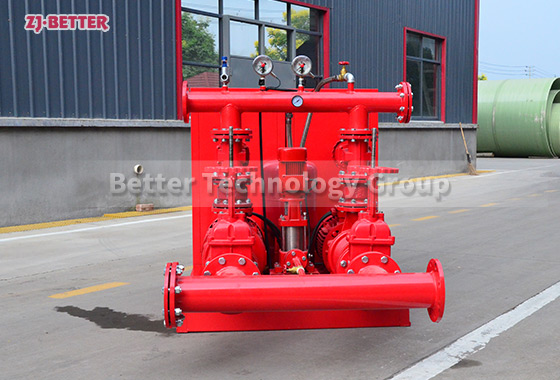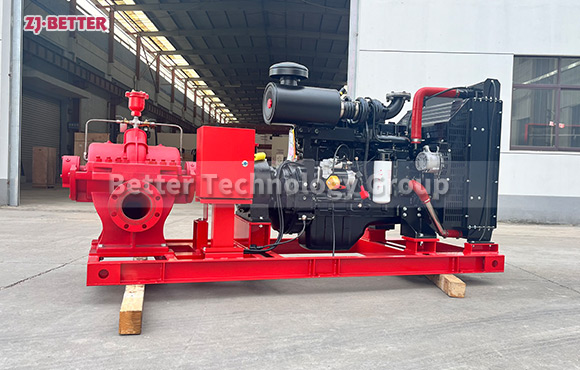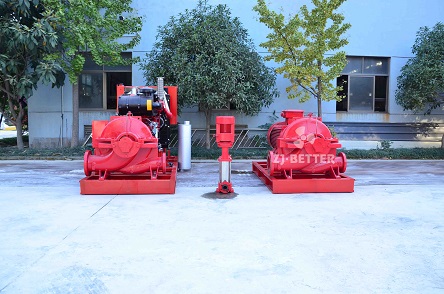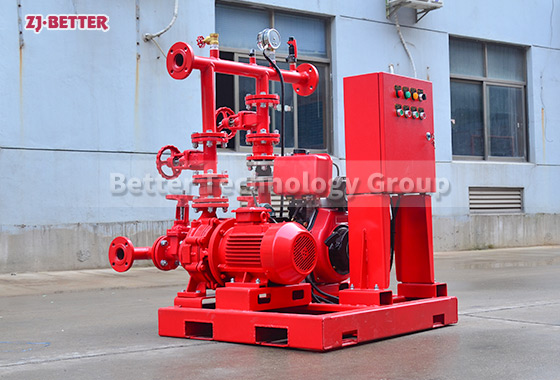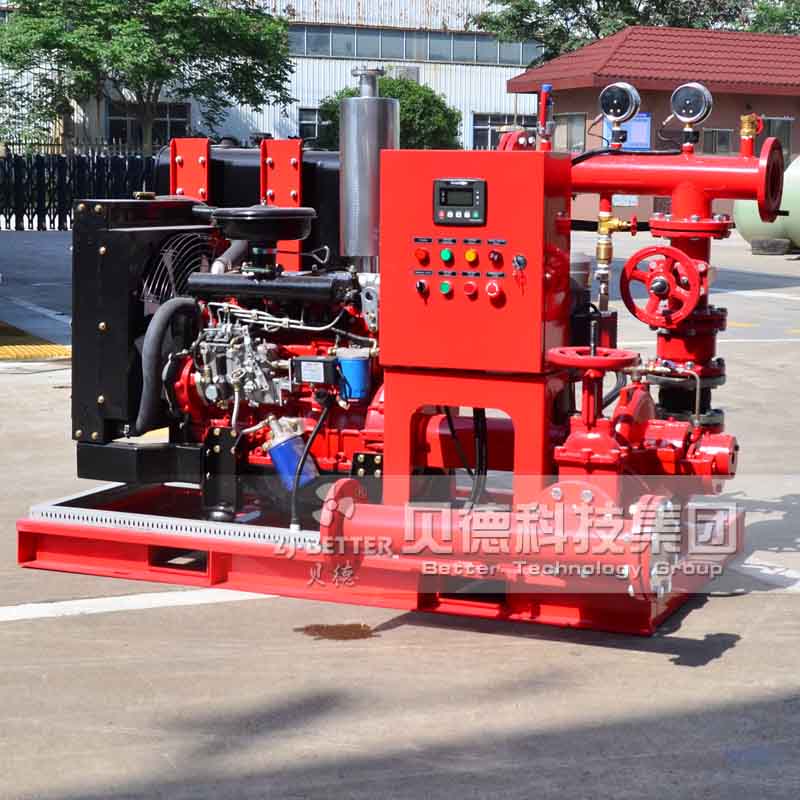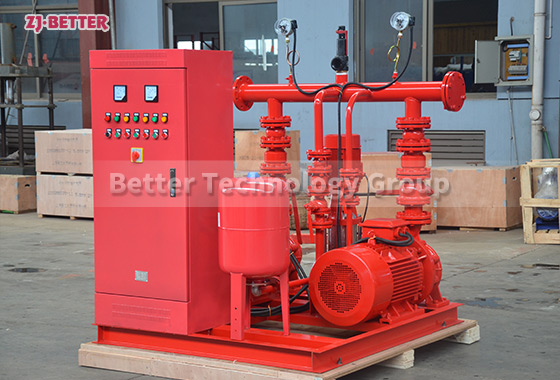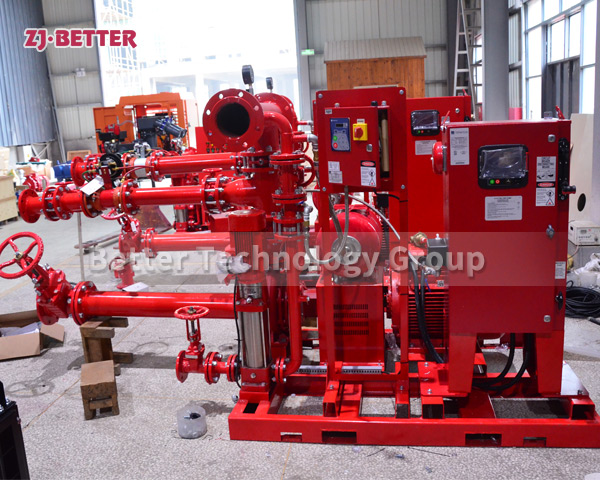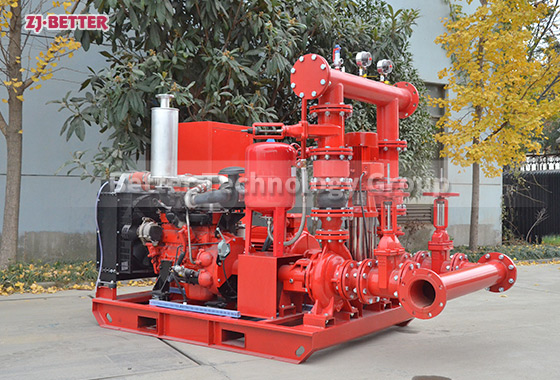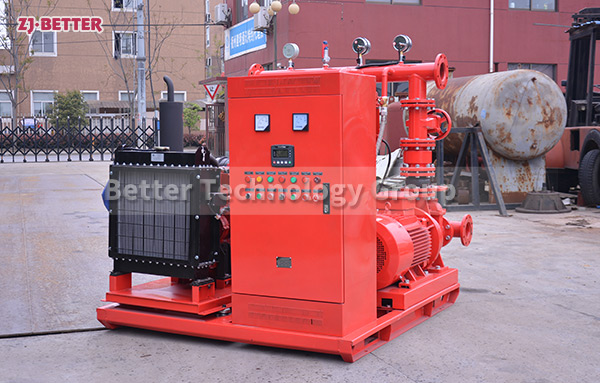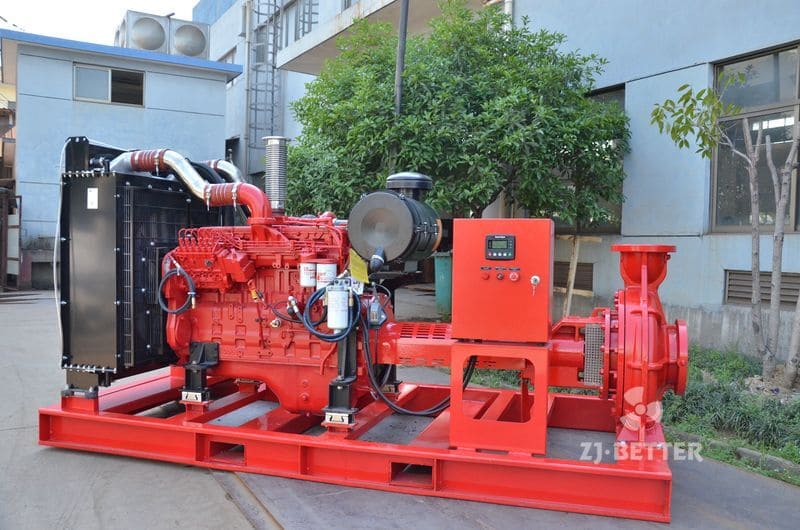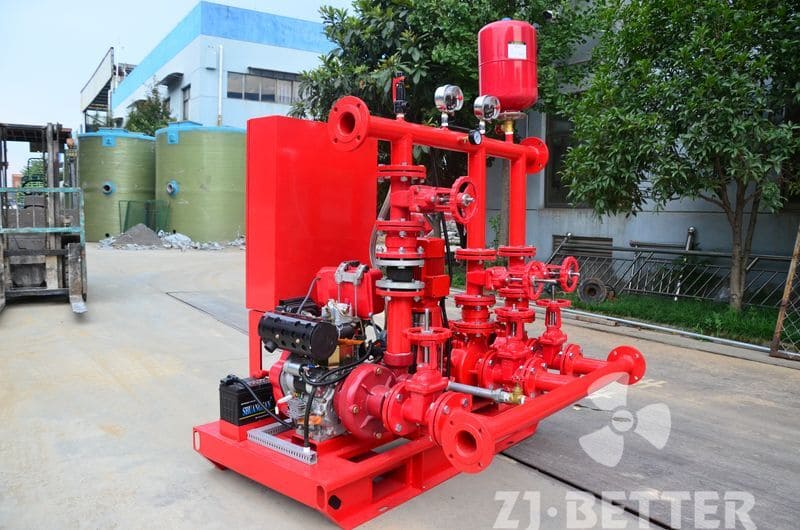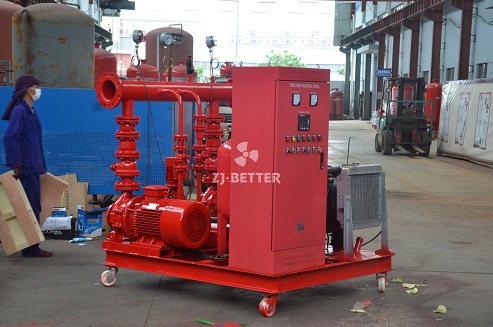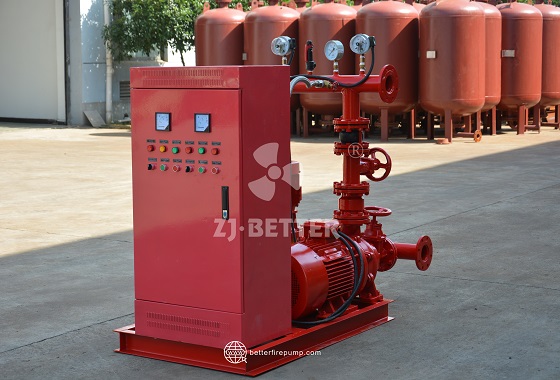Correct Maintenance of Diesel Engine Fire Pumps
Proper maintenance of diesel engine fire pumps, especially preventive maintenance, is simple and economical maintenance, so it is the key to prolong service life and reduce operating costs. Daily maintenance can be carried out according to the following steps to check the amount of fuel in the fuel tank – observe the amount of fuel stored in the fuel tank, and fill it up as needed.
The XBC diesel engine fire pump is installed together with electrical instruments and other equipment to form a complete set of fire protection equipment. It has complete functions, high degree of automation, compact structure, automatic fault alarm and receiving start signal, completes the start-up procedure by itself, and can quickly put into full-load operation. The unit can be equipped with shock absorbers, rubber flexible joints, and bellows mufflers for exhaust ports. In case of insufficient fuel, low battery voltage, high lubricating oil temperature, overspeed, etc., an alarm device is equipped, and a heating device is also provided to ensure that the diesel engine starts in a low temperature environment. The whole system is safe, reliable and easy to use.

